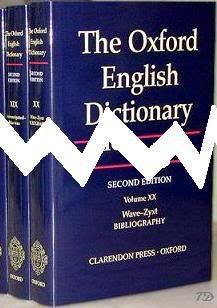 "I'm only 18 - but my opinions are important. It's my generation that will have to clean up after you" claims an article on Comment is Free. Matthew Sinclair deals with most of rubbish he spouts, but there is one point in the CiF article that I want to address, the one in the title quoted above - "I'm only 18 - but my opinions are important". In the article, Charlie writes:
"I'm only 18 - but my opinions are important. It's my generation that will have to clean up after you" claims an article on Comment is Free. Matthew Sinclair deals with most of rubbish he spouts, but there is one point in the CiF article that I want to address, the one in the title quoted above - "I'm only 18 - but my opinions are important". In the article, Charlie writes:
"[Y]oung people feel strongly about things that will affect them... To dismiss young people's opinions simply because they are young is ridiculous; no wonder so many of my friends have no interest. If we aren't allowed to participate in debates with the older generation, what is the point of our becoming interested in politics?...
So let's stop moaning about our young people. We have opinions and ideas on political issues , and it would be nice to be able to express them. Let us get involved in decision making - and, just once in a while, talk about the positive things that we're doing rather than the negative."
The opinions of young people tend to be dismissed for one very simple reason: they have nothing - or very little - to base them on. An 18 year old's opinion has less "value" than that of a 40 year old because the 40 year old has life experience on which to base them. At 18, you have no real life experience. All your life you have lived at your parent's home and under their protection. Your opinions are immature, unformed, un
informed, and easily manipulated - and very much the result of school indoctrination [for lack of a better word].
At 18 you think you know everything. I know I did. You think your opinions are intelligent, well though out and based on sound principles - but, of course, they're not. They're based on bullshit. 18 year olds know little or nothing about the real world outside of the closed and structured environment of school, where you are effectively spoon-fed ideas and answers. When you finally leave that safe environment and move out, you begin to realise that where you are wrong, and that things aren't like you thought they are or would be.
Over the last four years at university, I have learnt a significant amount about life - but I know I still have a hell of a long way to go. But the first, and arguably most important, step is realising that your opinions are almost certainly wrong in at least one way, and that experience can and will teach you where that is. That is why an 18 year old's opinion means little. Even that of a 22 year old like me doesn't mean all that much - but I know
why it doesn't. As a mark of how opinions and understandings change, even just over the last year when I have been writing this blog, my opinions have significantly adapted and matured - and that is one of the reasons
why I blog.
The voice of the 'yoofs' isn't taken too seriously for one main reason: because they don't mean squat yet. There is no real foundation on which they have been built, and they will change as you grow up. Mine have [and will continue to do so, I'm sure], and yours will. In forming opinions, experience
is key - and 18 year olds simply don't have any.








































